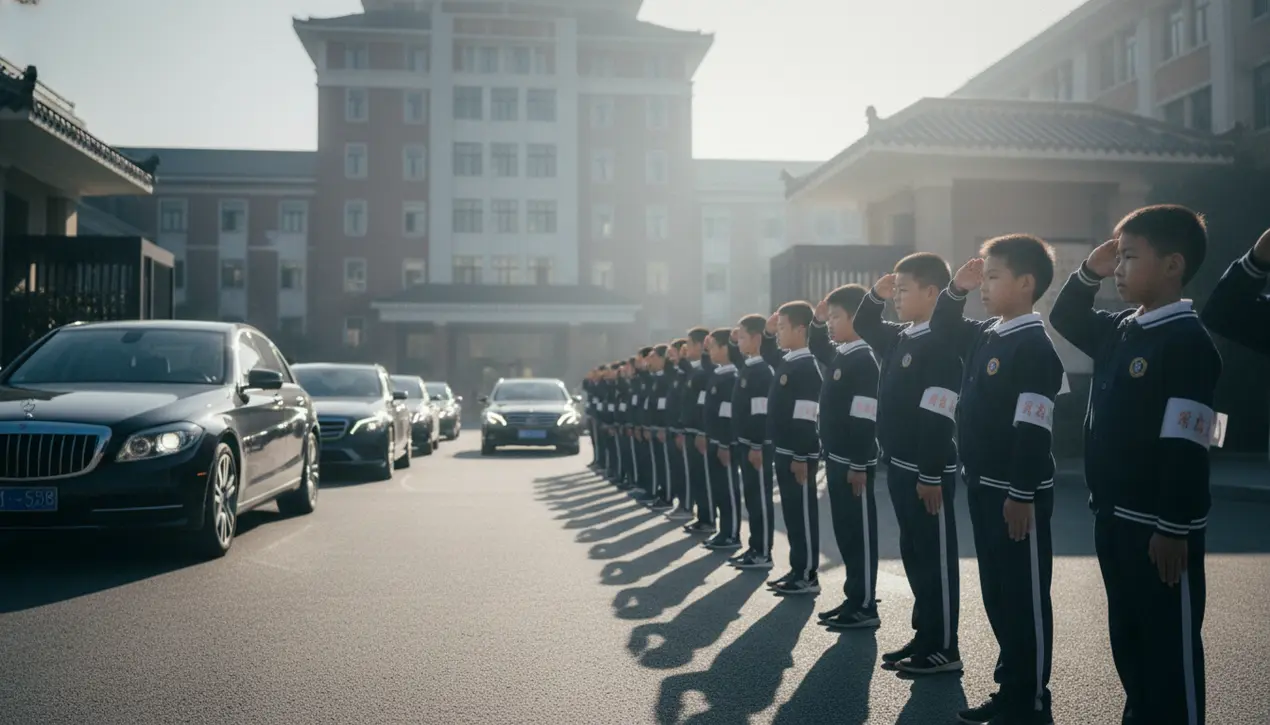
OthereducationSchool Reforms
School Sparks Outrage for Student Salutes to Teachers' Cars
LA
Laura Bennett
2 hours ago7 min read
The viral video from Hangzhou’s Jianqiao Primary School, showing young pupils in patrol armbands standing at rigid attention to salute teachers’ cars as they entered the school grounds, has ignited a firestorm of public debate that cuts to the very heart of modern educational values and the psychological landscape of childhood in competitive societies. This century-old institution, celebrated as a key local school and a model of civility, found itself at the center of a digital maelstrom as the clip, lasting less than a minute, depicted a scene that many viewers interpreted not as respectful discipline but as a performative, almost militaristic, subservience that felt jarringly anachronistic.Speaking with several educational psychologists and former teachers, a more nuanced picture emerges; while the school may have intended the gesture as a simple lesson in politeness, the act of children formally saluting not the person but the vehicle—the symbol of the teacher’s authority and status—unintentionally reinforces a power dynamic that can be deeply internalized by young minds, creating a hierarchy where respect is demanded by position rather than earned through relationship. This incident is not occurring in a vacuum; it echoes a broader, often unspoken, tension in East Asian educational systems, where immense pressure for academic excellence and institutional prestige coexists, and sometimes clashes, with evolving philosophies of child-centered learning and emotional well-being.The outrage online, particularly from younger generations of parents, reflects a growing rejection of rote obedience in favor of fostering critical thinking and mutual respect, a sentiment captured by one sociologist I interviewed who noted, 'We are witnessing a generational shift in what constitutes authority. The salute to the car is a powerful, non-verbal cue that says the institution's status is paramount, and the child's role is to acknowledge it publicly, a message that can undermine the very self-worth we try to build in classrooms.' Conversely, some older commentators and local defenders of the tradition have framed the criticism as an overreaction, a symptom of a society becoming too soft, missing the point that discipline and respect are the bedrocks of learning. Yet, the emotional core of the backlash is undeniable; it’s a reaction to the visual of childhood innocence being co-opted into a ritual of institutional branding, where students become unwitting ambassadors of the school’s rigid decorum.The potential consequences are multifaceted, ranging from a simple, quiet end to the practice under public pressure, to a deeper, more necessary community conversation about the symbols we use in education and what they truly teach our children about their place in the world. This is not merely about a salute; it is a window into the ongoing struggle to define the soul of education in the 21st century—is it about molding compliant subjects or nurturing empowered individuals? The answer to that question, reflected in the heated discussions following this single video, will shape not only policies at Jianqiao Primary School but the very ethos of classrooms for years to come.
#education controversy
#school traditions
#student-teacher dynamics
#public outrage
#viral video
#featured
Stay Informed. Act Smarter.
Get weekly highlights, major headlines, and expert insights — then put your knowledge to work in our live prediction markets.
Related News
Comments
Loading comments...
© 2025 Outpoll Service LTD. All rights reserved.